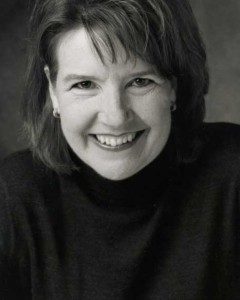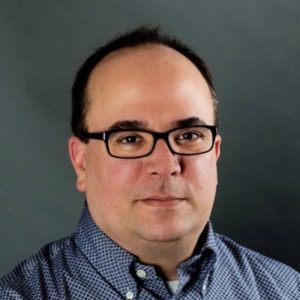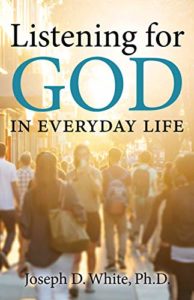Podcast: Play in new window | Download (Duration: 53:33 — 36.8MB) | Embed
Subscribe: Apple Podcasts | Spotify | Amazon Music | Android | Pandora | iHeartRadio | JioSaavn | Podchaser | Gaana | Podcast Index | Email | TuneIn | Deezer | Anghami | RSS | More
A SPECIAL SEEKING TRUTH CATHOLIC BIBLE STUDY FOR OUR TROUBLED TIMES

GENESIS 48, 49 and 50
Our final lesson of Genesis begins with an in-depth look at the typology between the Joseph of Egypt and Joseph of Bethlehem. In 1870, Pope Pius IX declared St. Joseph as the patron saint of the universal Catholic Church. In that document, Pope Pius recognized the connections between the two men. Just as Pharaoh made Joseph the lord of his household, prince over all his possessions, protector of all the grain in the land, so too did the Lord choose another Joseph, the earthly guardian of Jesus, to be the lord and chief of his household and possessions and guardian of his choicest treasures. Joseph, the husband to Mary, was the father of the beginning of the Church on earth. He was the foster father to Jesus and the defender and protector of the Holy Family.
From his many roles come many other titles for Joseph of Bethlehem. He was also Joseph of Nazareth, indicating the Holy Family’s home when they return from Egypt. As instructed in a dream (Matthew 2:13-15), he became Joseph the Immigrant, fleeing to Egypt with Mary and infant Jesus, thus fulfilling the words of the prophet Hosea: “Out of Egypt I called my son.” Other titles for St. Joseph include Joseph most just and Joseph most chaste. He is also called mirror of patience, the model of obedience, the model of artisans, the illustrious son of David and the Terror of Demons. Scripture does not record a single word of Joseph and his presence is missing during the public ministry of Jesus, leading most scholars to assume he must have died before then. Artists have depicted Joseph being comforted by Mary and Jesus on his death bed, which explains why Joseph is the patron saint of a happy death. Like Mary, no one claims to have the relics of Joseph.
There are many other examples of typology between Joseph of Egypt and Joseph of Bethlehem. Both are sons of Jacob and both are models for the virtue of chastity. Joseph protected Jesus, the Bread of Life, enabling Him to accomplish His plan of salvation for the world. Likewise, Joseph of Egypt stored up grain, protecting the bread of life the world needed during the famine.
Dreams were important to both. In his dreams, angels help Joseph understand his role as the earthly foster father of Jesus and husband to Mary. Joseph had four dreams: Joseph was told to take Mary as his wife as she had conceived by the Holy Spirit (Matthew 1:20-21); Joseph was warned to leave Bethlehem and flee to Egypt (Matthew 2:13); Joseph was told to return to Israel (Matthew 2:19-20); Joseph was told to return to Galilee instead of going to Judea (Matthew 2:22). As we have seen in earlier chapters of Genesis, Joseph of Egypt was himself a dreamer (Genesis 37) but also had the gift to interpret dreams by the power of God (Genesis 40, 41).
In response to the COVID-19 pandemic of 2020, this particular lecture was given before an empty room. By order of civil authorities, no more than 10 people could be gathered in one location. The empty shelves at the supermarkets bring to mind the empty grain bins during the famine in Genesis. Just as the Lord allowed the famine, He too has allowed the 2020 pandemic. But as we have been reminded throughout this study of Genesis, “We know that in everything God works for good with those who love him, who are called according to his purpose” (Romans 8:28).
Joseph acknowledged that his brothers intended to harm him, but that God intended it so that many lives could be saved. As Jacob lay on his death bed, Joseph presented his two sons, Manasseh and Ephraim. Jacob claimed them as his own sons, future offspring would belong to Joseph. Ephraim and Manasseh were given the same status as the brothers of Joseph. As he prepared to impart his blessing, Jacob’s eyes were dim with age, just as the eyes of his own father, Isaac, were dim when he gave his blessing to Jacob instead of firstborn Esau. When Jacob blessed Ephraim and Manasseh, he crossed his arms such that his right blessing hand laid upon the younger Ephraim and his left hand upon the older Manasseh. Joseph tried unsuccessfully to correct his father. Just as the younger Jacob received the blessing instead of the older Esau, so too did the younger Ephraim receive the blessing instead of the older Manasseh as it was with other brother pairings in the book of Genesis.
Jacob then pronounced blessings over the remaining brothers. Despite being the firstborn, Reuben did not receive the blessing of birthright because he had slept with Bilhah, the maid of Rachel. Simeon and Levi were criticized for their excessive vengeance against Shechem. Judah, the fourth born, was praised by Jacob, who describes him as a lion, whose lineage will include King David and Jesus. Jacob then went on to describe the future for each of the remaining sons. Before breathing his last, Jacob requested to be buried at the cave at Machpelah, alongside the body of his wife Leah (recall that Rachel died during the birth of Benjamin and was buried along the roadside near Bethlehem). The tomb at Machpelah also holds the graves of Abraham, Sarah, Isaac, and Rebekah and was purchased outright. Joseph traveled to Machpelah accompanied by a large funeral procession of Egyptians who shared in his grief. Joseph’s brothers tried to claim that on his death bed, Jacob commanded Joseph to forgive them. However, Joseph forgave them on his own accord, knowing that God would be the one to judge them.
At the end of Genesis, Joseph died at the age of 110 years. His body was transported back to Canaan for burial. In Genesis 33, Jacob purchased a plot of land in Shechem and from Joshua 24:32, we read “The bones of Joseph which the people of Israel brought up from Egypt were buried at Shechem, in the portion of ground which Jacob bought.” The tomb of Joseph is found in modern-day Nablus, very close to the well where Jacob first met Rachel. At this same well, Jesus encountered the sinful Samaritan woman (John 4) who to this day is revered as St. Photina.
During the COVID-19 pandemic, many Catholics around the world are unable to attend mass and receive Jesus in the Eucharist. In this time of famine from the body of Christ, we can still be nourished by His Word: “The Church has always venerated the divine Scriptures just as she venerates the body of the Lord, since, especially in the sacred liturgy, she unceasingly receives and offers to the faithful the bread of life from the table both of God’s word and of Christ’s body. She has always maintained them, and continues to do so, together with sacred tradition, as the supreme rule of faith, since, as inspired by God and committed once and for all to writing, they impart the word of God Himself without change and make the voice of the Holy Spirit resound in the words of the prophets and Apostles. Therefore, like the Christian religion itself, all the preaching of the Church must be nourished and regulated by Sacred Scripture. For in the sacred books, the Father who is in heaven meets His children with great love and speaks with them; and the force and power in the word of God is so great that it stands as the support and energy of the Church, the strength of faith for her sons, the food of the soul, the pure and everlasting source of spiritual life. Consequently, these words are perfectly applicable to Sacred Scripture: “For the word of God is living and active” (Heb. 4:12) and “it has power to build you up and give you your heritage among all those who are sanctified” (Acts 20:32; see 1 Thess. 2:13) (Dei Verbum 21).
Sharon Doran serves as the teaching director of “Seeking Truth.” An experienced Bible Study teacher, Sharon has a passion for scripture that will motivate and challenge you to immerse yourself in God’s Word and apply His message to your everyday life.
For more in this series visit the Seeking Truth with Sharon Doran Discerning Hearts page
 “Seeking Truth” is an in-depth Catholic Bible Study, commissioned by the Archdiocese of Omaha in response to John Paul II’s call to the New Evangelization as well as Pope Benedict XVI’s exhortation for all Catholics to study scripture. To learn more go to www.seekingtruth.net
“Seeking Truth” is an in-depth Catholic Bible Study, commissioned by the Archdiocese of Omaha in response to John Paul II’s call to the New Evangelization as well as Pope Benedict XVI’s exhortation for all Catholics to study scripture. To learn more go to www.seekingtruth.net



 Just the right book and just the right time. I am delighted to be joined by Dr. Joseph White Ph.D. to discuss “Listening for God in Everyday Life.” At a time when so many are anxious and afraid, this timely new book shines a bright light in all the areas where God is seeking to console and guide us. At a time when we may be asking “Where are you, God?”, Dr. White helps us to see the many unexpected ways in which God is present and waiting to touch our lives. If we can begin to hear and see God in all things our relationship deepens with one who knows us better than ourselves. We realize we are not alone, especially in our fears and struggles. Dr. White is a nationally recognized clinical psychologist and a deep man of prayer. He offers practical insights and questions for us to reflect on to aid our ability to listen with the ears of our hearts.
Just the right book and just the right time. I am delighted to be joined by Dr. Joseph White Ph.D. to discuss “Listening for God in Everyday Life.” At a time when so many are anxious and afraid, this timely new book shines a bright light in all the areas where God is seeking to console and guide us. At a time when we may be asking “Where are you, God?”, Dr. White helps us to see the many unexpected ways in which God is present and waiting to touch our lives. If we can begin to hear and see God in all things our relationship deepens with one who knows us better than ourselves. We realize we are not alone, especially in our fears and struggles. Dr. White is a nationally recognized clinical psychologist and a deep man of prayer. He offers practical insights and questions for us to reflect on to aid our ability to listen with the ears of our hearts.


 Dr. Anthony Lilles took some time out of his extremely busy day to join us to discuss the global pandemic of the coronavirus and COVID-19. He shares his experience in Northern California and reflects on what God might be calling us to. He then shares with us a translation of the Prayer of St. Patrick that he has translated and appears on his Beginning to Pray blog.
Dr. Anthony Lilles took some time out of his extremely busy day to join us to discuss the global pandemic of the coronavirus and COVID-19. He shares his experience in Northern California and reflects on what God might be calling us to. He then shares with us a translation of the Prayer of St. Patrick that he has translated and appears on his Beginning to Pray blog.
